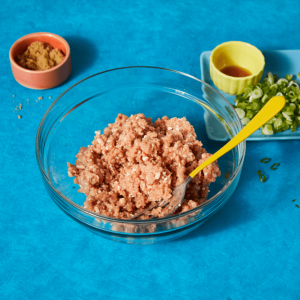Halal food and cosmetics are making headlines around the globe, as brands are tapping into the Muslim market with their halal-certified products. However, an interesting shift is happening amongst young Muslims that brand managers and marketers need to be aware of: a new wave of green Muslims are shaping up, and what’s most peculiar, is that they’re hailing from the West.
More and more millennial Muslims are placing emphasis on tayyab, wanting to make sure that the entire production products of goods consumed are aligned with their Islamic values. Tayyab, meaning to be wholesome and pure, is deeply rooted in Islamic philosophy and principles. While being halal makes sure that things are manufactured or slaughtered in a permissible way, tayyab sees that what we consume is backed up by an ethical supply chain. While the older generation of Muslims emphasise on halal over tayyab, young Muslims need more.
 With hijabi models taking over the NYFW runways, brands have some what understood the opportunities, but many still lack clear messaging, positioning, and stories that touch the heart of these modern consumers. Millennial Muslims wish that rather than seeing this as an opportunity for commercial exploitation, brands would take their concerns seriously: business must make the world a better place.
With hijabi models taking over the NYFW runways, brands have some what understood the opportunities, but many still lack clear messaging, positioning, and stories that touch the heart of these modern consumers. Millennial Muslims wish that rather than seeing this as an opportunity for commercial exploitation, brands would take their concerns seriously: business must make the world a better place.
Today’s Muslim consumer is increasingly more aware of brands engaging in a holistic and socially conscious approach to business, and they believe that these values belong to everyone – not just Muslims alone.
Not In My Food. Not on My Face. Not On My Body.
One of the unique attributes of this consumer group is that they are no longer bound to traditions and cultures of their forefathers. These tech-savvy young Muslims are breaking the mold and created a new culture, which unites Muslims from all corners of the world, acting upon their belief that faith and modernity walk hand-in-hand. Many are turning back to the basic values of Islam and leading a life that is more conscious about the environment, and ethical consumption is a huge aspect. This new change of consciousness has shaped millennial Muslims of the diaspora communities to creative and strong entrepreneurs, which on the other hand has created a demand for food and other consumer products and services that don’t only remain halal, but are healthy, sustainable, wholesome, and socially aware. What makes a green Muslim unique is that their eco-friendly lifestyle is driven by faith.
While most are familiar with halal food or even halal cosmetics, it’s important to note that halal and tayyab apply to all aspects of life from finance to travel and even fashion. To be halal is to be tayyab and to be tayyab is to be halal, this is a concept that must be understood as the two are inseparable. This however, does not mean that all abide to the law of halal and tayyab working as one. As an unfortunate example, most halal-meat manufacturers have forgotten this, placing emphasis on the slaughtering process alone. Green millennial Muslims don’t only care about the way that animals die, but about the way they have lived, and this school of thought applies to all aspects of production from start to finish – resources must be properly respected and workers must not be exploited.
Not Quite Mainstream Yet
As it took a while for hippies to make organic food mainstream, eco-conscious Muslims are also still battling their way in. Regretfully, most Muslims remain ignorant or unaware of knowing what they consume. Muslim girls were ecstatic to see a hijabi-model featured on H&M’s ad campaign, but many forget or turn a blind eye to the violations of working conditions that most large fast fashion brands are guilty of.
However, the green shift is happening and it can mostly be seen in young Muslim entrepreneurs. Many  are creating businesses that value organic and sustainable living. Abraham Organics offers organic halal-meat stating that they “believe good food has the power to bring people together, and by making the right choices about our food, we can positively impact the planet we live on”.
are creating businesses that value organic and sustainable living. Abraham Organics offers organic halal-meat stating that they “believe good food has the power to bring people together, and by making the right choices about our food, we can positively impact the planet we live on”.
Purple Impression, an eco-conscious fashion brand, puts emphasis on earth-friendly materials and transparency of the production process, whilst the halal cosmetics brand Amara offers natural products with no alcohol or animal substances, wishing to empower the everyday woman. These businesses don’t believe that making money is wrong, but the process of how we make money needs to be changed.
Brands like Toms, a successful shoe company who for every product purchased helps a person in need, have a great chance in speaking to the values of green Muslims as they tap into an essential aspect of Muslim faith, which is charity. This a great case study that young Muslim entrepreneurs and brands can also learn from.
Marketing Struggles And Opportunities
Brands struggle with the tendency of seeing the millennial Muslim market as just another interesting segment: the Islamic opportunity is not qualified by one primary difference (age, orientation, language, or ethnicity), making it differ qualitatively. The starting point for millennial Muslims is Islamic identity, and everything else that comes along should fit into it. It’s important to note, however, that the Islamic ideals of millennial Muslims are essentially universal values that appeal to everyone regardless of faith or no faith. This is essential for brand marketers and managers to understand, as it gives the potential to appeal to a much wider audience. This is a key note that most brands miss, and is one of the reasons to why brands have been slow in reaching out to one of the fastest growing global markets.
The green Muslim movement offers great opportunities for brands within all industries: food, fashion, travel, and finance. While brands tend to focus more on the mass Muslim population, the green Muslim movement remains as a gap in the market waiting to be filled. Once filled, it will effectively create loyal customer relationships and make your brand become a leader in its niche, as sustainable consumerism is what will shape our future.



